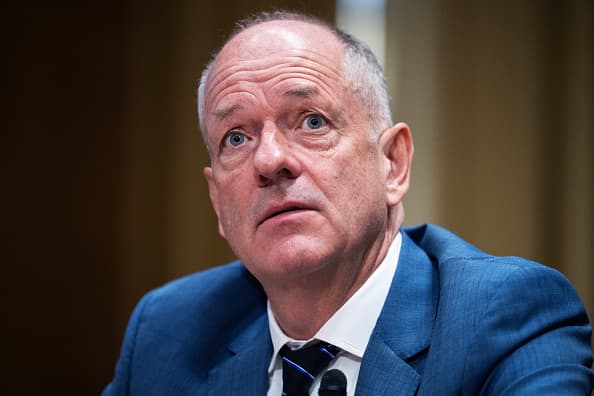
Andrew Witty, CEO of UnitedHealth Group, testifies during the Senate Finance Committee hearing titled “Hacking America’s Health Care: Assessing the Change Healthcare Cyber Attack and What’s Next,” in the Dirksen Building in Washington, D.C., on May 1, 2024.
Tom Williams | Cq-roll Call, Inc. | Getty Images
UnitedHealth Group CEO Andrew Witty on Friday mourned the death of Brian Thompson, who led the company’s insurance arm, and acknowledged that the U.S. health-care system is “flawed” and in need of reform.
“We know the health system does not work as well as it should, and we understand people’s frustrations with it,” Witty wrote in a New York Times opinion piece. “No one would design a system like the one we have. And no one did. It’s a patchwork built over decades.”
UnitedHealth Group’s “mission is to help make it work better,” he said.
“We are willing to partner with anyone, as we always have—health care providers, employers, patients, pharmaceutical companies, governments and others—to find ways to deliver high-quality care and lower costs,” Witty added.
The New York Times piece marks Witty’s first public comments since last week’s fatal shooting of Thompson, CEO of UnitedHealthcare, the largest private insurer in the U.S. UnitedHealth Group is the nation’s biggest health-care conglomerate based on revenue. Its nearly $475 billion market cap has shrunk since Thompson’s death on Dec. 4.
Luigi Mangione, 26, is accused of fatally shooting Thompson outside the Hilton hotel in midtown Manhattan as the CEO headed to UnitedHealth Group’s investor day. Investigators have said Mangione was a critic of the health-care industry, a widely held view among Americans.
The killing has unleashed a wave of pent-up resentment and anger toward the insurance industry, which has become a popular villain blamed for spiraling health-care costs and difficulties accessing care. From denied claims, rising premiums and unexpected bills, to an overall lack of transparency, patients have flooded social media with stories about their own negative experiences with insurance.
Still, the killing comes after a challenging year for the insurers, which are under pressure to shore up profits. This year in particular, companies grappled with higher medical costs due to seniors opting for surgeries they had delayed during the Covid-19 pandemic.
Witty acknowledged UnitedHealth Group’s role in the health-care challenges in the U.S.
“Health care is both intensely personal and very complicated, and the reasons behind coverage decisions are not well understood,” Witty said, noting, “We share some of the responsibility for that.”
He did not provide specifics around what exactly could be done to reform the industry. But Witty said the company, together with employers, governments and other payers, needs to improve how insurers explain what is covered and how those decisions are made.
He also noted that behind certain claims decisions “lies a comprehensive and continually updated body of clinical evidence focused on achieving the best health outcomes and ensuring patient safety.”
Witty said Thompson had done his best to help patients navigate the health-care system.
This article was originally published on CNBC

